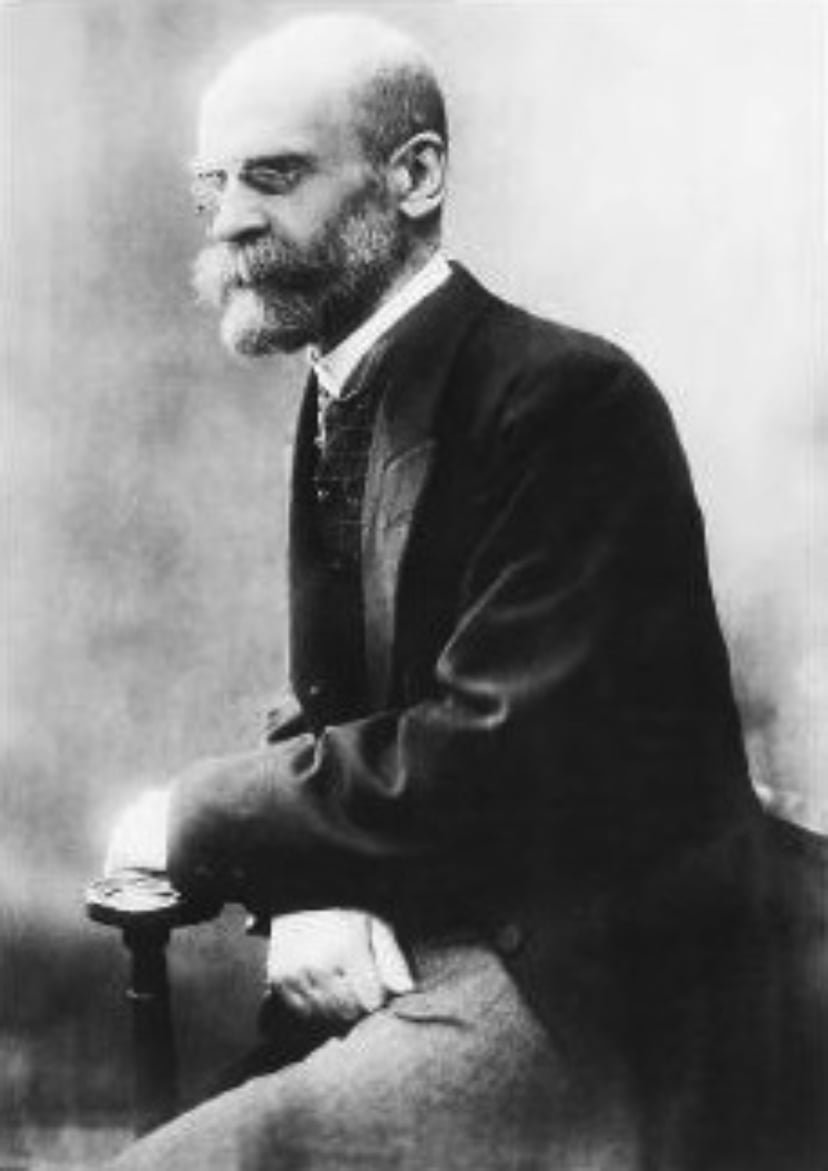

Noboru Yoshikawa

|
吉川 のぼる 昇
|
|
|---|---|
| Personal Description | |
| Place of Birth | Shonan, Kanagawa |
| Age | 14 |
| Gender | Male |
| Eye Color | Gray |
| Hair Color | Black |
| Occupation | Student |
| Affiliation | Holy Forest Academy |
| Debut | |
| Manga Debut | GTO (Manga) (Chapter 13) |
| Anime Debut | GTO (Anime) (Episode 3) |
| Live Action Debut | GTO (TV Drama 1998) |
| Voice Actors | |
| Kosuke Okano (Japanese) | |
| Voice Actors | |
| Shun Oguri (1998) | |
Noboru Yoshikawa
Japanese Name:吉川のぼる (Yoshikawa Noboru)
Role:Student at Holy Forest Academy, member of Class 3-4
Date of Birth:December 22
|
Émile Durkheim
|
|
|---|---|
| Born |
David Émile Durkheim
15 April 1858 Épinal, France
|
| Died | 15 November 1917(aged 59)
Paris,France
|
| Nationality | French |
| Alma mater | École Normale Supérieure |
| Known for | Sacred–profane dichotomy Collective consciousness Social fact Social integration Anomie Collective effervescence |
| Scientific career | |
| Fields | Philosophy, sociology, education, anthropology, religious studies |
| Institutions | University of Paris, University of Bordeaux |
| Influences | Immanuel Kant, René Descartes,Plato, Herbert Spencer,Aristotle, Montesquieu, Jean-Jacques Rousseau, Auguste Comte. William James, John Dewey, Fustel de Coulanges, Jean-Marie Guyau, Charles Bernard Renouvier, John Stuart Mill |
| Influenced | Marcel Mauss,Claude Lévi-Strauss, Talcott Parsons, Maurice Halbwachs, Jonathan Haidt, Lucien Lévy-Bruhl,Bronisław Malinowski, Fernand Braudel, Pierre Bourdieu, Charles Taylor, Henri Bergson, Emmanuel Levinas, Steven Lukes, Alfred Radcliffe-Brown, E. E. Evans-Pritchard, Mary Douglas, Paul Fauconnet, Robert N. Bellah, Ziya Gökalp, David Bloor, Randall Collins, Neil Smelser[1] |
Appearance
Noboru has a typical student look, characterized by his short, slightly tousled hair and a slim build. He often wears the standard Holy Forest Academy uniform, which consists of a white shirt and a blazer, reflecting his status as a student. His expression varies between anxious and determined, showcasing his personality as he navigates the challenges of being in Class 3-4.

Helpless and bound, Noboru Yoshikawa endures the cruelty of bullying, his vulnerable expression a poignant reminder of the harsh realities faced by those targeted by bullies.
Personality
Noboru is often depicted as a timid and anxious student, particularly overwhelmed by the chaos and mischief that frequently arises in Class 3-4 under Eikichi Onizuka’s unconventional teaching methods. Despite his initial cowardice, he possesses a strong sense of loyalty to his classmates and gradually learns to stand up for himself. Throughout the series, Noboru’s character development highlights themes of courage and self-discovery.
Key Rivalries and Relationships
Eikichi Onizuka
As a student in Onizuka’s class, Noboru is often caught in the middle of his teacher’s outlandish schemes. While initially apprehensive about Onizuka’s teaching style, he comes to appreciate the life lessons imparted through these experiences.
Class 3-4 Students
Noboru shares a complex relationship with his classmates, who often drag him into their antics. He grows close to them over time, learning the value of friendship and camaraderie.
Notable Achievements
- Growth as a Student:Noboru’s character arc reflects his journey from a timid student to one who learns to assert himself, showcasing the positive impact of Onizuka’s unconventional teaching methods.
Trivia
Trivia:
★ Noboru often finds himself in comedic situations, serving as a foil to more rebellious characters in Class 3-4.
★ His birthday on December 22 adds a personal touch to his character, often referenced during class celebrations or events.